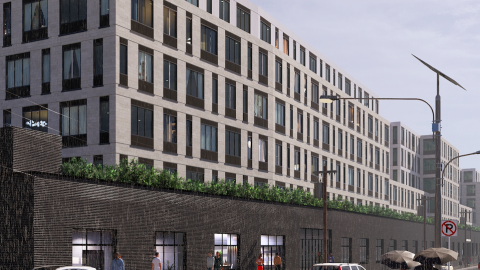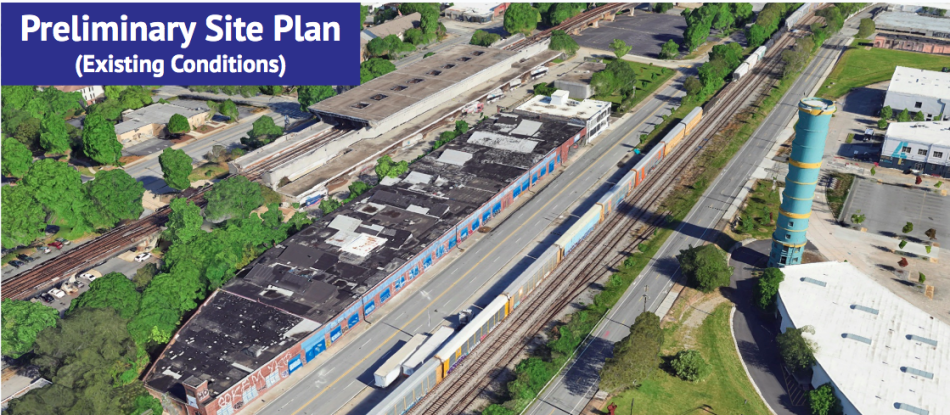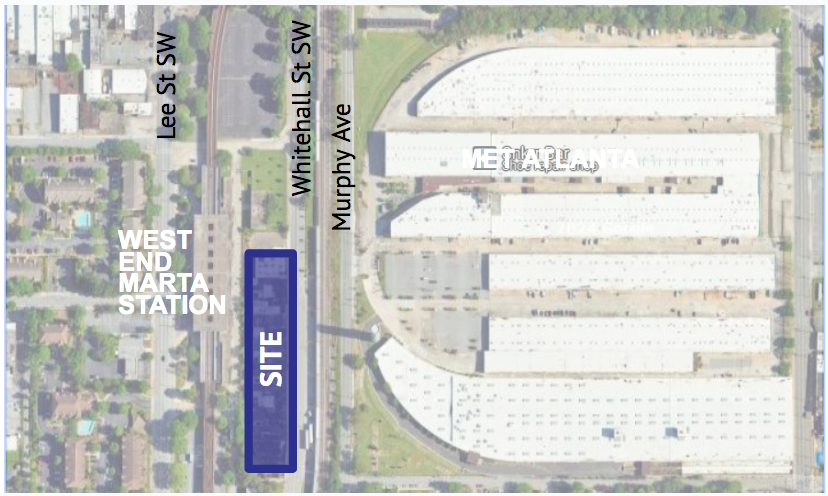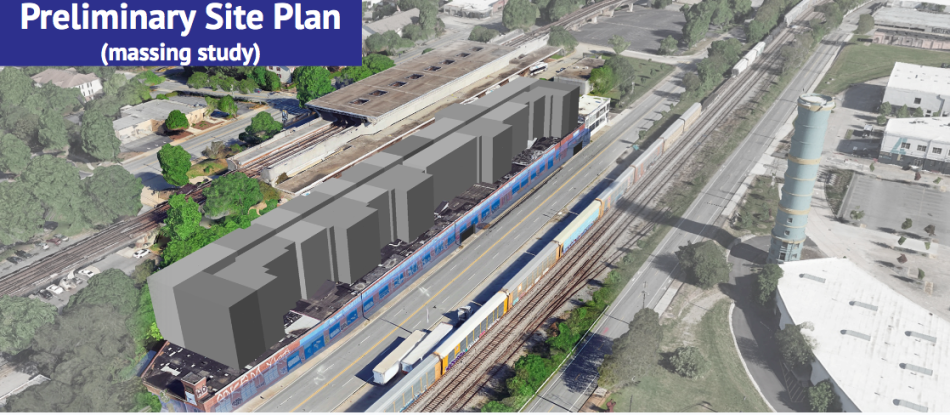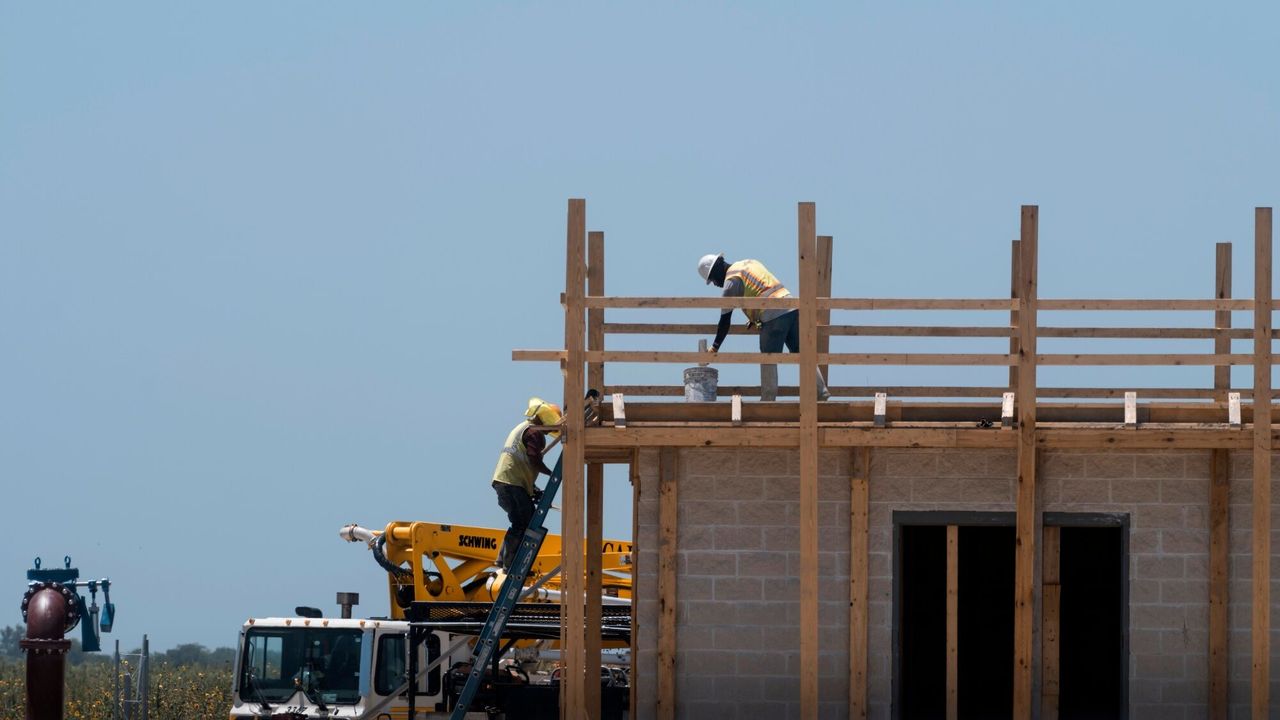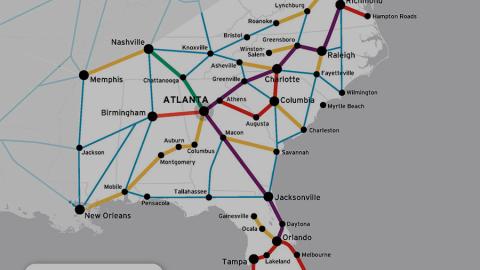A unique warehouse conversion and expansion project is in the work for a section of Southwest Atlanta that’s become a hotbed for investment on potentially transformative scales.
Officials with Wisconsin-based developer Gorman & Company confirm to Urbanize Atlanta a mixed-income proposal is moving forward at 715 Whitehall St. in West End that could create nearly 200 housing options at the doorstep of a MARTA station where none exist today.
The transit-oriented proposal, called “The Residences at West End,” would keep a one-story, brick structure in place along Whitehall Street for use as commercial spaces, residential amenities, and parking.
Five additional stories would be built above that for 175 apartments with between one and three bedrooms, according to developers.
Draft designs call for a modern-style, linear project overlooking two active rail lines next door to MARTA’s West End station. However, all aspects of the project, including Gorman’s purchase of the circa-1930 warehouse property, are contingent on tax incentives at the state level.
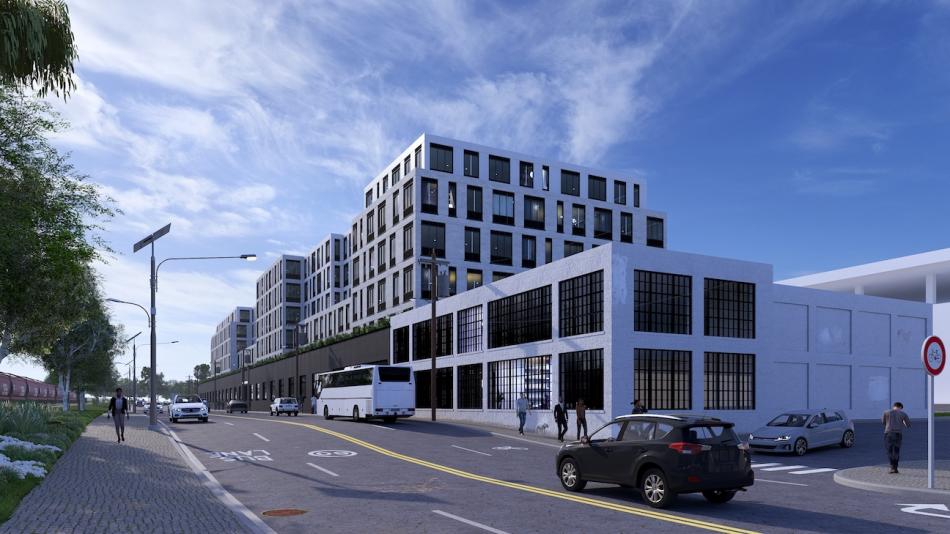 Preliminary designs for the 715 Whitehall St. building's facade and massing. Courtesy of Gorman & Company
Preliminary designs for the 715 Whitehall St. building's facade and massing. Courtesy of Gorman & Company
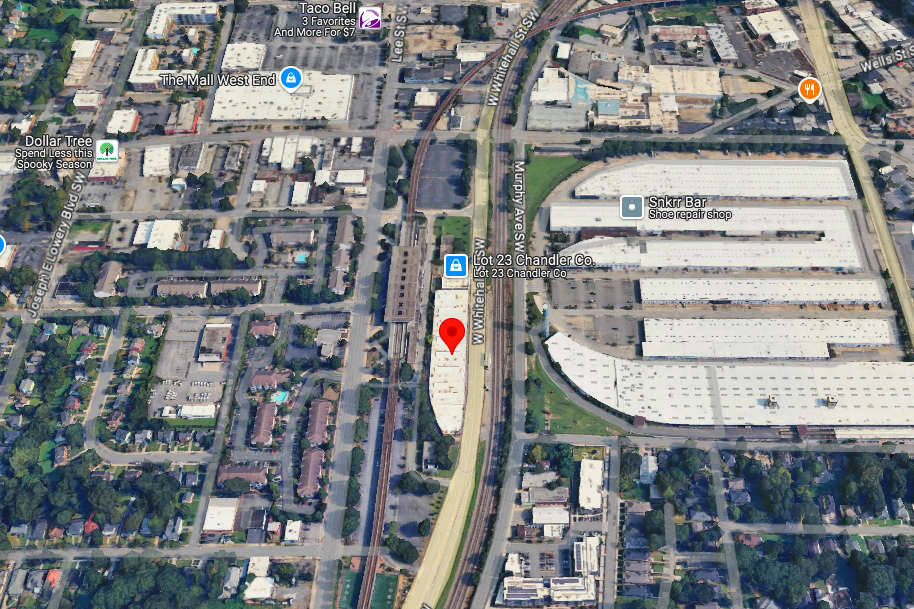 The Whitehall Street building today in relation to Mall West End and the Met Atlanta (at right). Google Maps
The Whitehall Street building today in relation to Mall West End and the Met Atlanta (at right). Google Maps
Following earlier meetings with Invest Atlanta, NPU-T, and neighborhood groups, Gorman officials on Friday submitted the proposal to the Georgia Department of Community Affairs for consideration for tax credit funding. The Georgia DCA is expected to make its decision this winter or in spring of next year, according to Gorman officials.
Gorman, a national firm focused on building affordable housing in seven core markets, including Atlanta, would be the Residences at West End project's developer, construction company, architect, and property manager, per officials.
The 1.1-acre property in question stands about two blocks south of the Mall West End, which city leaders recently purchased to build some 1.7 million square feet of development in coming years, costing to the tune of $450 million, alongside New York City-based developers.
An earlier proposal for the Whitehall Street warehouse complex called “WestLine Studios” did not come to fruition.
The project’s estimated cost is $73.5 million. The bulk of that—or more than $38 million—would be sourced from a tax-exempt bond from the Georgia DCA, according to preliminary numbers in the NPU presentation.
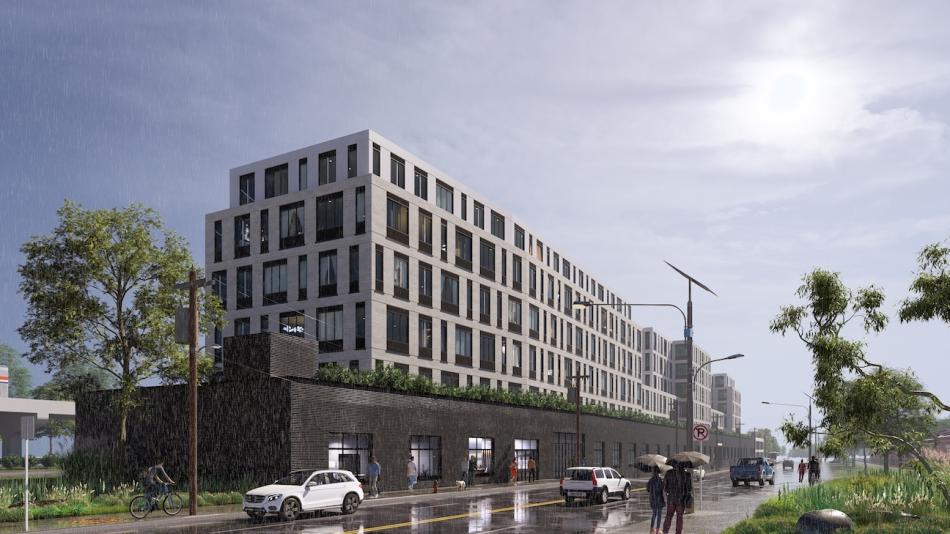 View of the proposal looking north, opposite MARTA tracks, according to draft designs. Courtesy of Gorman & Company
View of the proposal looking north, opposite MARTA tracks, according to draft designs. Courtesy of Gorman & Company
The Residences at West End would rent apartments at rates capped for tenants earning between 30 and 80 percent of the area median income, with a small portion (tentatively nine) renting for market rate. About half of the apartments would rent at 50 percent AMI, per the earlier presentation.
Access to the airport, downtown, and ground-floor retail are cited as perks of the project.
The site is roughly five blocks north of the BeltLine’s Westside Trail and the Lee + White food, beverage, and office district.
Directly across the MARTA tracks in Adair Park is sprawling former warehouse complex the Met Atlanta, now a hub for makers and artists, that was bought for $70 million last month by a Charlotte-based subsidiary of healthcare company Atrium Health.
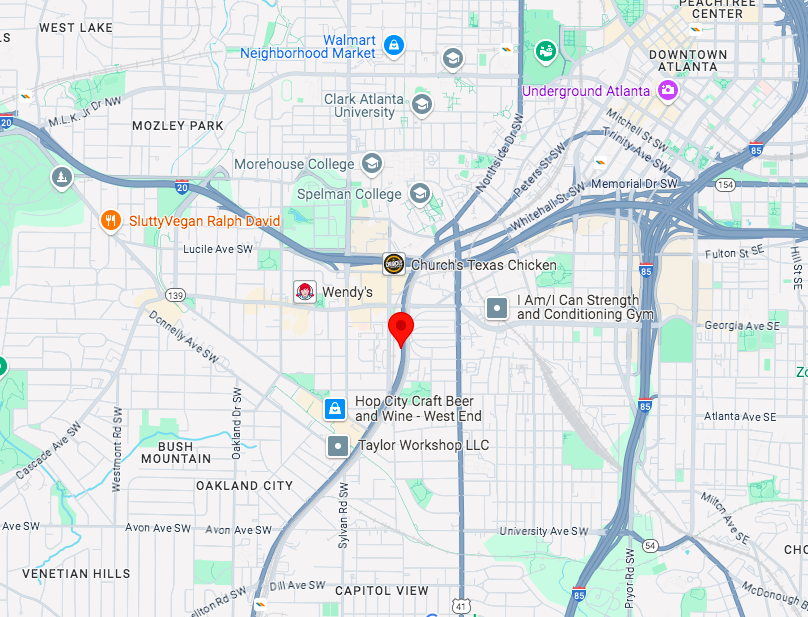 Location of the 715 Whitehall St. SW site in relation to downtown, the Beltline's Westside Trail, and other landmarks. Google Maps
Location of the 715 Whitehall St. SW site in relation to downtown, the Beltline's Westside Trail, and other landmarks. Google Maps
Elsewhere in Atlanta, Gorman plans to break ground in coming weeks on a mixed-use project called Sweet Auburn Grande in the shadow of downtown.
The company has also completed projects Hamilton Hills across the street from MARTA’s westernmost station and the Residences at Westview, a 60-unit affordable housing complex near Westview Cemetery. Development officials said during the latter project’s ribbon-cutting in February they expect to deliver 350 new housing units across Atlanta within the next couple of years.
Gorman’s tentative timeline in West End, should financing pan out, calls for finalizing designs in late 2025 and breaking ground early the following year. The building could start leasing in summer 2027 if the project stays on that track, per the developer.
Find more context and images for this latest West End proposal in the gallery above.
...
Follow us on social media:
Twitter / Facebook/and now: Instagram
• West End news, discussion (Urbanize Atlanta)
